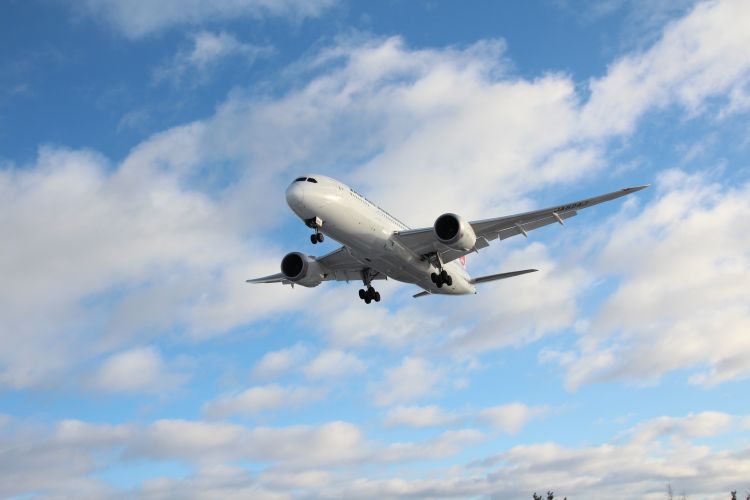
The recent years saw several Indian airline companies struggling to stay afloat and the latest to join the bandwagon is the country’s youngest, Akasa Air. The low-cost carrier has cut its services on 10 routes and discontinued flights on eight others. Akasa started operations only last year, and has been experiencing a exodus of pilots since early July. Between July and September, 43 pilots left India’s youngest airline to join rival carriers without completing the mandatory notice period. Consequently, the airline’s weekly flight count has decreased from 945 in June to 754 in October.
During the period between June and October, Akasa Air reduced flights on routes including Delhi-Hyderabad, Goa-Bengaluru, Kochi-Bengaluru, Ahmedabad-Bengaluru, and Mumbai-Kochi. For example, on the Goa-Bengaluru route, the airline scheduled approximately 45 flights per week in June, but by October, this number decreased to just 12 per week. The primary reason for this is the shortage of pilots, a perennial problem for India’s airline industry.
READ | India needs land reforms, tenancy policies to boost farm output
India currently has 9,000 pilots flying its 700 aircraft, and pilot shortage is now jeopardising the growth of the industry. In any industry, a 5-10% shortage is considered a significant manpower challenge. Although Akasa Air’s story is unique, it still aligns with the broader theme of challenges facing the Indian aviation industry. The airline industry in India is grappling with high operating costs, expensive aviation turbine fuel (ATF), pilot shortages, and intense competition. The latest situation can snowball into a major crisis for the industry.
The turbulence at Akasa Air is worrying, particularly considering India’s already inadequate fleet of 700 aircraft, compared with China’s 7,000 aircraft. Insiders in the aviation industry point out that planes are operating at full capacity, and ticket prices are soaring due to the limited availability of flights, exacerbated by the shortage of pilots. As a result, the possibility of the airline industry evolving into a duopoly between IndiGo and carriers managed by the Tata Group is growing.
India’s domestic aviation industry is fast becoming a duopoly with Tata-owned airlines on one side and IndiGo on the other. Tata Group owns Air India, Vistara, and AirAsia India, which together have a market share of around 25%. IndiGo has a market share of over 50%. This means that the two groups together control over 75% of the Indian aviation market. The other airlines in India, such as SpiceJet and Akasa Air, are much smaller and have a much smaller market share.
Over the last three decades, several airlines such as NEPC, Kingfisher, Modiluft, and Jet Airways have closed down. The most recent casualty was Go First, and while Akasa Air is managing to stay afloat, it is evident that a deep-seated problem persists in the aviation industry, leading to the demise of promising companies. Currently, aside from IndiGo and Tata Group-run airlines, every other carrier in India is bleeding financially.
IndiGo’s significant growth was catalysed by the void left by Jet Airways, resulting in an 82% increase in international passengers carried (8,539,158) between 2018-19 and 2022-23. IndiGo implemented a three-pronged expansion strategy for international growth, involving independent expansion, code-sharing agreements, and leasing Boeing 777 aircraft from Turkish Airlines. The Boeing 777 is a wide-body plane that facilitates traffic to Istanbul. The airline has also established codeshare partnerships with Air France—KLM, American Airlines, Virgin Atlantic, Qatar, Qantas, and Turkish Airlines. Additionally, the airline is contemplating entering new international markets from India, such as Tbilisi, Baku, Tashkent, and Almaty, which are non-traditional routes for Indian travellers.
On the other hand, Air India, with its extensive global network, came under the Tata Group’s control in January 2022. Shortly after, the conglomerate embarked on an expansion spree, placing orders for new airplanes. The focus now is on aggressive expansion within the short-haul international network through Air India Express, the low-cost subsidiary of Air India.
The Tata Group’s takeover of Air India is likely to have a positive impact on the aviation industry. It is expected to lead to increased competition among airlines, which will benefit passengers. It will also help improve the quality of aviation services in India, and will generate new jobs in the industry.
IndiGo and Air India stand as the two major pillars of India’s evolving aviation landscape. Whether due to luck or strategic government support, these two entities are on track to establish a new duopoly in the aviation industry. To foster healthy competition and ensure the sector’s growth, the government must recognise the recurring pattern of Indian airlines shutting down every two to three years. It is high time for the government to acknowledge the role played by high taxes and fuel prices, which often contribute to airline failures.
Other challenges facing India’s aviation industry include the absence of significant domestic leasing companies, reliance on foreign lessors, fluctuating currency rates, and a lack of understanding of leasing agreements.
The emerging scenario is a cause of concern for a number of reasons. First, it could lead to higher fares for passengers and could stifle innovation and competition in the industry. It could also make the industry more vulnerable to shocks, such as economic downturns or fuel price spikes.
The government is seized of the situation and has taken some steps to address it. The government has relaxed foreign ownership rules for airlines in the hope of attracting new entrants to the market. However, it is too early to say whether these measures will be successful. It is clear that the domestic aviation market will continue to be dominated by Tata Group and IndiGo in the coming years which could have lasting repercussions for air passengers and the industry as a whole.
